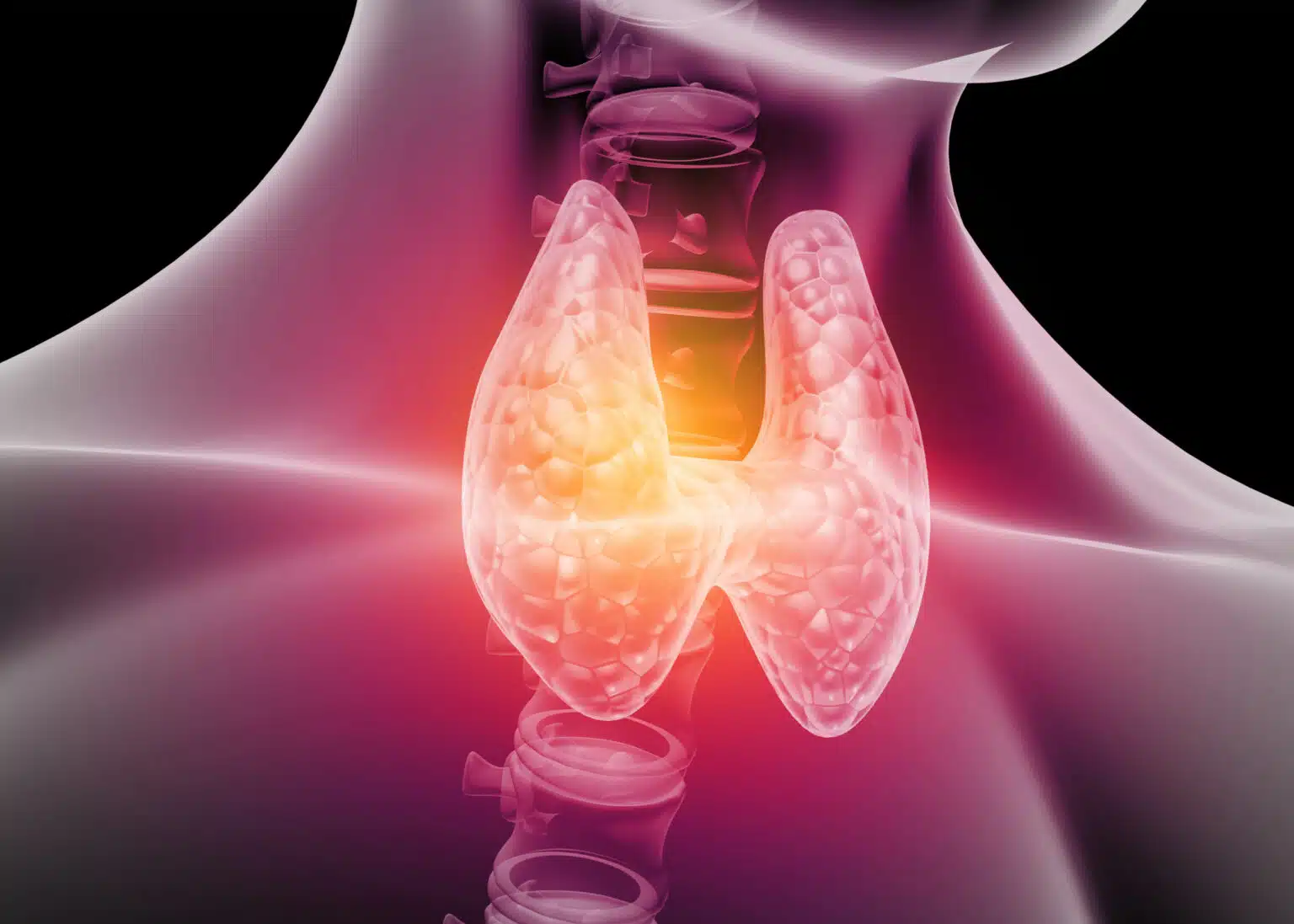According to experts, women are ten times more likely than males to develop thyroid disorders. The fact that thyroid diseases are brought on by autoimmune reactions is one of the main causes of this.

The thyroid gland, a tiny, butter- fly shaped gland at the base of the neck, is crucial to how the human body develops. It is in charge of producing hormones that regulate processes like development and metabolism.
Impact of Hormones on thyroid
Thyroxine, triiodothyronine, and calcitonin are three hormones secreted by the thyroid gland that have an impact on the body’s metabolism and growth. Diseases are brought on by the over- or underproduction of these hormones, most frequently T3 and T4.
Hypothyroidism, hyperthyroidism, thyroiditis, and thyroid cancer are the most prevalent conditions affecting the thyroid gland. Due to the relationship between the female hormone, oestrogen, and thyroxine, thyroid problems are more prevalent in women at different periods of life.

According to experts, women are ten times more likely than males to develop thyroid disorders. The fact that thyroid diseases are brought on by autoimmune reactions is one of the main causes of this.
“This is because autoimmune reactions, in which the body’s immune system begins to fight its thyroid gland, frequently result in thyroid diseases. Although the exact cause of why women experience autoimmune responses more frequently than men is unknown, genetic, environmental, and lifestyle variables are likely to be responsible”, the Lovely Professional University assistant professor Dr Biplab Pal remarked.
Doctor’s states on evaluation of thyroid at different stages
Dr Vineeta Taneja, Director of Internal Medicine at Fortis Hospital in Shalimar Bagh, New Delhi, claims that oestrogen boosts the creation of both the protein that binds to the thyroid hormone and the thyroid hormone itself.
“Additionally, thyroglobulin, a precursor to thyroid hormone, is stimulated by oestrogen. Because oestrogen levels change at many stages of a woman’s life, including menarche, puberty, pregnancy, lactation, and menopause, thyroid diseases are more prevalent in women “Dr Taneja noted.
She continued by pointing out that thyroid disorders caused by autoimmune diseases are frequently encountered in women. A woman’s thyroid should be carefully evaluated during these life stages because hypothyroidism is frequently diagnosed during puberty, pregnancy, and menopause.
On the other hand, hypothyroidism (the thyroid gland’s underactive activity) during pregnancy may have an impact on the development of the foetus inside the womb. Females are more likely than males to get thyroid cancer, and it often does so earlier.

In addition to this, several other variables raise the risk of thyroid diseases.
“Environmental and lifestyle factors, like the amount of iodine consumed, exercise routine, sleep patterns, and smoking and tobacco consumption, all affect the correct functioning of the thyroid gland,” said Dr Pal.
Thyroid hormones and the hormones that change throughout the menstrual cycle are also connected. Although thyroid disorders can develop at any time, Dr Pal continued, “they appear to be more common in women during and following menopause due to the changes in hormone levels.”
Precaution and care for thyriod
With the right treatment and medicine, thyroid issues can be controlled. An enlarged thyroid gland, anxiety, irritability, nervousness, difficulties sleeping, muscle weakness, weight loss, and other symptoms are typical signs of thyroid diseases.
Women should see doctors right away if they experience any thyroid-related symptoms, suggested Dr Pal.













